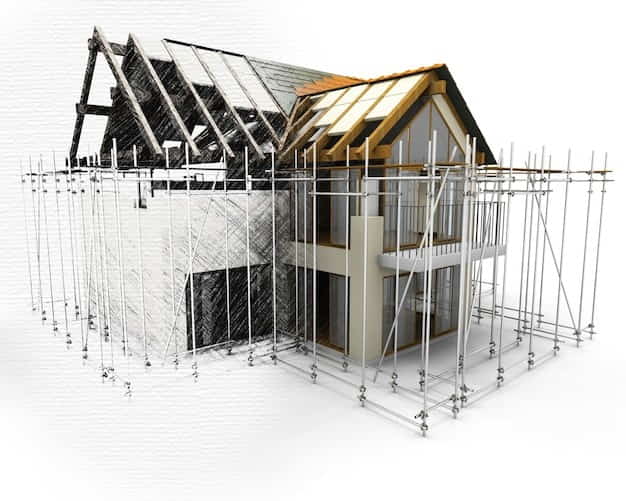Expanding your living space through a home extension can be an exciting prospect for homeowners in the United Kingdom. Whether you’re looking to add extra bedrooms, create a larger kitchen, or build a home office, a well-executed extension can enhance both your lifestyle and the value of your property. However, the prospect of managing extension costs can often be daunting. From planning and design to construction and finishing touches, expenses can quickly add up. In this article, we’ll explore some tips for homeowners in the UK to manage and minimize extension costs effectively.
Understanding the Cost of Extension in London
Before embarking on any extension project, it’s crucial to have a clear understanding of the potential expenses involved. In London, where property prices and construction costs can be notably high, being well-informed about the cost of extensions is essential. Factors such as the size of the extension, the complexity of the design, materials used, and labour costs can all impact the overall expenditure.
Research suggests that the average cost of an extension in London ranges from £1,200 to £3,000 per square meter, depending on various factors. Understanding these costs upfront allows homeowners to set realistic budgets and avoid unexpected financial strain during the project.
Planning and Design: Lay the Foundation for Cost Efficiency
One of the most critical phases of any home extension project is the planning and design stage. Investing time and resources in thoughtful planning can significantly contribute to cost savings down the line. Here are some tips to consider:
Set Clear Objectives: Define your goals for the extension clearly. Determine how you intend to use the additional space and prioritize features accordingly.
Work with Experienced Professionals: Collaborating with architects, designers, and structural engineers who have experience in UK property regulations and building codes can help streamline the design process and prevent costly mistakes.
Optimize Space: Maximizing the use of existing space and avoiding unnecessary structural alterations can help minimize construction costs. Consider innovative design solutions that make the most of available square footage.
Budgeting and Cost Management: Stay on Track
Once the design is finalized, it’s time to create a detailed budget and implement strategies to manage costs effectively throughout the project:
Create a Comprehensive Budget: Develop a thorough budget that accounts for all aspects of the extension, including materials, labour, permits, and contingency funds for unexpected expenses.
Obtain Multiple Quotes: When sourcing materials and hiring contractors, obtain multiple quotes to compare prices and ensure you’re getting the best value for your money. Be wary of overly low bids, as they may indicate subpar quality or hidden costs.
Consider Value Engineering: Value engineering involves finding cost-effective alternatives to materials and design elements without compromising quality or functionality. Work with your design team to identify areas where savings can be made without sacrificing aesthetics or structural integrity.
Construction Phase: Monitor Progress and Costs
During the construction phase, diligent oversight is crucial to ensure that the project stays on schedule and within budget:
Regular Site Inspections: Visit the construction site regularly to monitor progress and address any issues promptly. Open communication with the contractor can help prevent delays and costly mistakes.
Control Change Orders: Changes to the original design or scope of work can lead to additional expenses. Before approving any modifications, carefully consider their impact on the budget and timeline. Aim to minimize change orders whenever possible.
Track Expenses: Keep detailed records of all project-related expenses, including invoices, receipts, and payments. Tracking expenses in real-time allows you to identify potential cost overruns early and take corrective action.
Conclusion
Managing and minimizing extension costs requires careful planning, diligent budgeting, and effective cost management strategies. By understanding the cost of extension in London, prioritizing cost-effective design solutions, and closely monitoring expenses throughout the project, homeowners can achieve their desired expansion while keeping costs under control. Remember, investing wisely in your home today can pay dividends in the future, both in terms of enhanced living quality and property value.

Leave a Reply